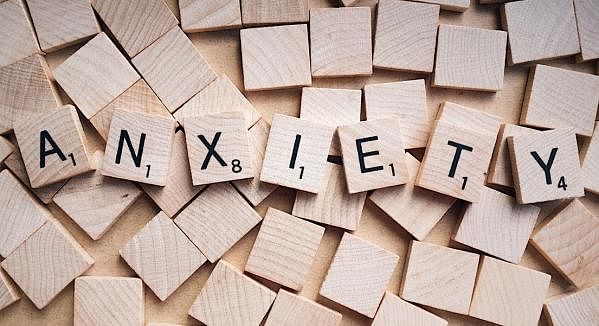What Is Stress?
Why you can trust Nutri Advanced Every article on our site is researched thoroughly by our team of highly qualified nutritionists. Find out more about our editorial process.
Stress has become one of the major underlying causes of chronic health problems in the Western world. And the word ‘stress’ is now used so frequently that many people have lost touch with what it actually means. I regularly see patients in my nutrition clinic whose health is being negatively affected by ‘stress’, yet when we start to discuss this over the course of a consultation, the initial response is often, ‘but I don’t feel stressed?’
‘Stress’ can appear in your life in many different guises, and sometimes it’s difficult to spot when it comes in forms that are less obvious. Understanding what stress actually is and what you can do if your health is affected by it is essential for living an optimally healthy life.
Definition of stress
My best definition of stress is anything that prompts your body to mount a ‘stress response’. In response to stress, your heart rate increases and blood vessels widen, your pupils dilate, energy shifts from housekeeping processes such as digestion, to your muscles instead and your body cleverly increases the level of sugar in your blood. All of these changes happen to make sure you are ready to fight or take flight. Your body interprets ‘stress’ as an immediate threat that you need to take action to deal with, and if you find yourself in an emergency situation (being chased by an angry dog or similar!) these physiological changes will make you much better equipped to do that.
21st century stress is different
Unfortunately, modern day stresses are often very different. 21st century stresses are more often mental or emotional such as ongoing relationship conflict, financial worries, feeling unhappy in your job, children struggling at school, a hectic daily commute, past trauma, bereavement or even constantly trying to lose weight or exercise more and feeling bad when you don’t. These types of stress can sometimes seem less obvious and can bubble under the surface, seemingly hidden until something snaps (like a health crisis).
Chronic stress is damaging to your health
Everyone has a certain level of stress in life and in fact, this is healthy. In his book, ‘The Stress of Life’, Hans Selye, famously wrote, ‘without stress there would be no life’. It’s only when stress becomes chronic and out of control that it becomes a problem that can negatively affect your health.
How to deal with stress
The first step to dealing with stress is acknowledging that it’s there. You have to first shine a light of awareness onto a problem before you can start to solve it. If you’re unsure where your stress levels are currently at, you can complete a simple questionnaire, which will give you a good indication whether they have reached unhealthy proportions.
If your stress levels are too high you then need to take action:
1) Identify the source of stress and take steps to reduce it
2) Nourish your body with a well balanced diet and key nutrients that will help to support a balanced stress response
3) Incorporate lifestyle changes into your weekly routine that will help you to better cope with life’s stresses when they come along. Mindfulness meditation, yoga, pilates, swimming and walking are just a few activities that can help you to cope better with stress
This website and its content is copyright of Nutri Advanced ©. All rights reserved. See our terms & conditions for more detail.
Nutri Advanced has a thorough research process and for any references included, each source is scrutinised beforehand. We aim to use the highest value source where possible, referencing peer-reviewed journals and official guidelines in the first instance before alternatives. You can learn more about how we ensure our content is accurate at time of publication on our editorial policy.
Most Popular Articles
-
7 Surprising Ways To Support Your Magnesium
If you are displaying signs of a magnesium deficiency, here are 7 ways to boost your magnesium levels that are easy to incorporate into your daily life. -
5 Best Vitamin C Supplements Picked By Our Experts
Learn more about the different types of vitamin C, the different benefits you get from different types, and what you get for spending more on a good supplement. -
Top 5 Vitamins For Energy And Tiredness Picked By Our Experts
The 5 best and most important vitamins for energy & tiredness including B vitamin food sources & best supplement forms for energy. -
Benefits of Myo-Inositol for Polycystic Ovary Syndrome (PCOS)
In this research review article, we take a closer look at a lesser-known natural compound called myo-inositol that has been found to have significant potential to improve many of the prevalent features of PCOS. -
Top 10 Reasons to Give Your Kids Omega-3
Read the top 10 reasons that kids should have plenty of Omega-3- an essential fatty acid- including for depression, brain function, sleep & reading/maths skills.











